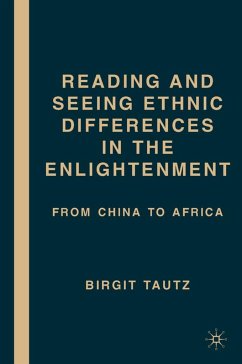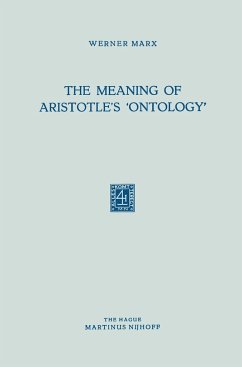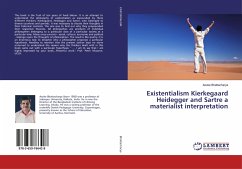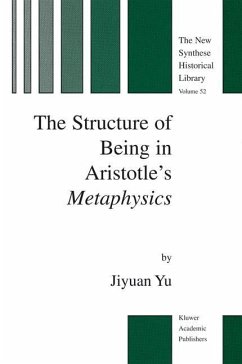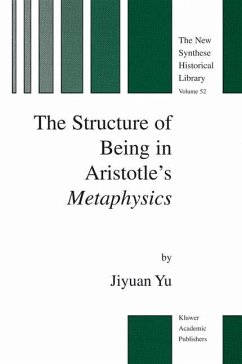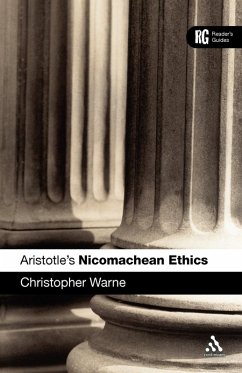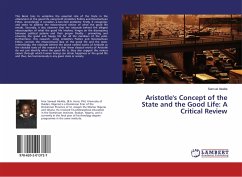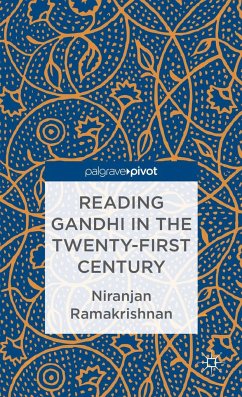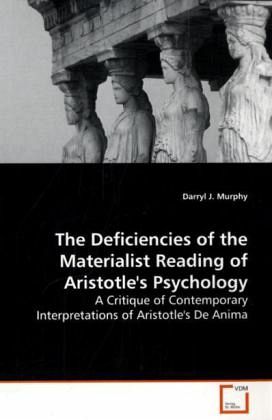
The Deficiencies of the Materialist Reading of Aristotle's Psychology
A Critique of Contemporary Interpretations of Aristotle's De Anima
Versandkostenfrei!
Versandfertig in 6-10 Tagen
32,99 €
inkl. MwSt.

PAYBACK Punkte
16 °P sammeln!
This book offers a concise introduction to the densetradition of scholarship that has grown up aroundAristotle s psychological philosophy, specificallythat found in Aristotle's De Anima. The bookpresents a general overview of the materialistinterpretations of Aristotle's notion of soul offeredby a few of the most influential commentators inrecent decades: Barnes, Sorabji, Nussbaum, andvarious others all of whom exercise considerableinfluence over current scholarship in the area, andover the teaching of Aristotle in today sundergraduate classrooms. The central contention ofthe work is that, des...
This book offers a concise introduction to the dense
tradition of scholarship that has grown up around
Aristotle s psychological philosophy, specifically
that found in Aristotle's De Anima. The book
presents a general overview of the materialist
interpretations of Aristotle's notion of soul offered
by a few of the most influential commentators in
recent decades: Barnes, Sorabji, Nussbaum, and
various others all of whom exercise considerable
influence over current scholarship in the area, and
over the teaching of Aristotle in today s
undergraduate classrooms. The central contention of
the work is that, despite its long history, the
materialist interpretation of Aristotle s notion of
soul and his psychology in general suffers
insuperable inconsistencies with the text of De Anima
itself and the Aristotelian corpus at large. The
Deficiencies of the Materialist Reading of
Aristotle s Psychology seeks to reinvigorate the
non-materialist tradition of scholarship in the area
by presenting a picture of its current front runners
that is succinct, accessible, and points to the
various facets of Aristotle s psychology that the
materialist approach in general fails to account for
adequately.
tradition of scholarship that has grown up around
Aristotle s psychological philosophy, specifically
that found in Aristotle's De Anima. The book
presents a general overview of the materialist
interpretations of Aristotle's notion of soul offered
by a few of the most influential commentators in
recent decades: Barnes, Sorabji, Nussbaum, and
various others all of whom exercise considerable
influence over current scholarship in the area, and
over the teaching of Aristotle in today s
undergraduate classrooms. The central contention of
the work is that, despite its long history, the
materialist interpretation of Aristotle s notion of
soul and his psychology in general suffers
insuperable inconsistencies with the text of De Anima
itself and the Aristotelian corpus at large. The
Deficiencies of the Materialist Reading of
Aristotle s Psychology seeks to reinvigorate the
non-materialist tradition of scholarship in the area
by presenting a picture of its current front runners
that is succinct, accessible, and points to the
various facets of Aristotle s psychology that the
materialist approach in general fails to account for
adequately.



